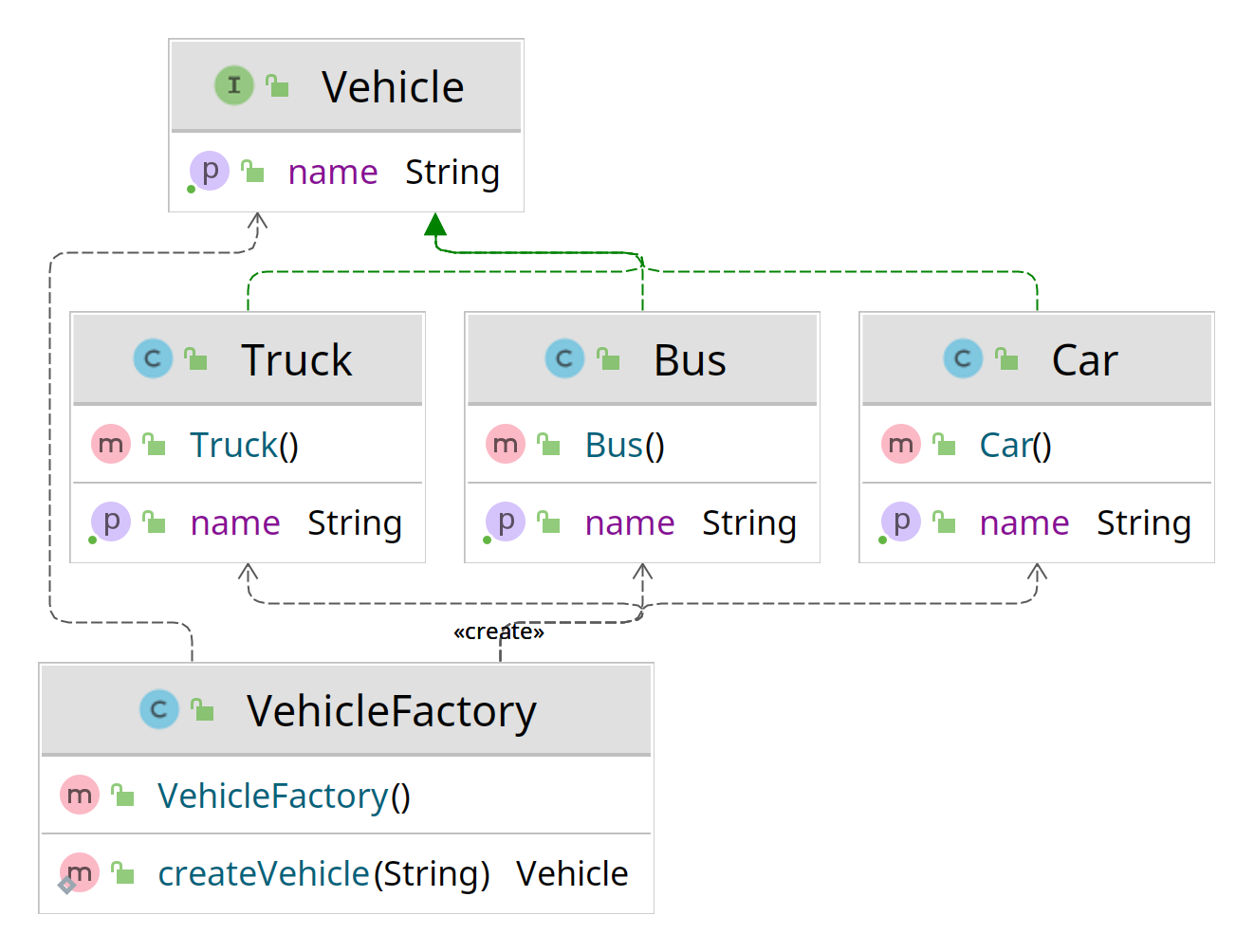Factory Design Pattern

Factory design pattern is a simple and basic pattern that belongs to creational design patterns. This pattern provides an abstraction for creating objects of a specific type. To create new instances of some type, a factory is used with some arguments provided, hence the name factory pattern. Let's dive into a simple example created in Java.
First of all, we need to have an interface that specifies some basic logic our classes must implement. For that, we created a Vehicle interface with a simple method returning a String representing its name.
public interface Vehicle {
String getName();
}
Next we need some implementations of that Vehicle, e.g. Car, Truck and Bus.
public class Car implements Vehicle {
@Override
public String getName() {
return "Car";
}
}
public class Truck implements Vehicle {
@Override
public String getName() {
return "Truck";
}
}
public class Bus implements Vehicle {
@Override
public String getName() {
return "Bus";
}
}
Finally, let's create our factory that contains creation logic for our vehicles.
public class VehicleFactory {
public static Vehicle createVehicle(String type) {
if ("CAR".equalsIgnoreCase(type)) {
return new Car();
} else if ("TRUCK".equalsIgnoreCase(type)) {
return new Truck();
} else if ("BUS".equalsIgnoreCase(type)) {
return new Bus();
} else {
throw new IllegalArgumentException("Vehicle of type " + type + " was not recognized");
}
}
}
To create an instance of some Vehicle, we can use createVehicle static method inside our factory, which handles creation logic of all our vehicles. It's also abstracted as it returns a Vehicle and not a concrete type. A sample logic is provided in the next code.
public class App {
public static void main(String[] args) {
Vehicle car = VehicleFactory.createVehicle("CAR");
// Prints: Created a vehicle of type: Car
System.out.println("Created a vehicle of type: " + car.getName());
Vehicle truck = VehicleFactory.createVehicle("TRUCK");
// Prints: Created a vehicle of type: Truck
System.out.println("Created a vehicle of type: " + truck.getName());
Vehicle bus = VehicleFactory.createVehicle("BUS");
// Prints: Created a vehicle of type: Bus
System.out.println("Created a vehicle of type: " + bus.getName());
}
}
Conclusion
That's it! We created and implemented an example of factory pattern in Java. Java standard library contains many implementations of this pattern, e.g. java.util.Calendar, which provides four getInstance static methods with different parameters to create an instance of a Calendar.